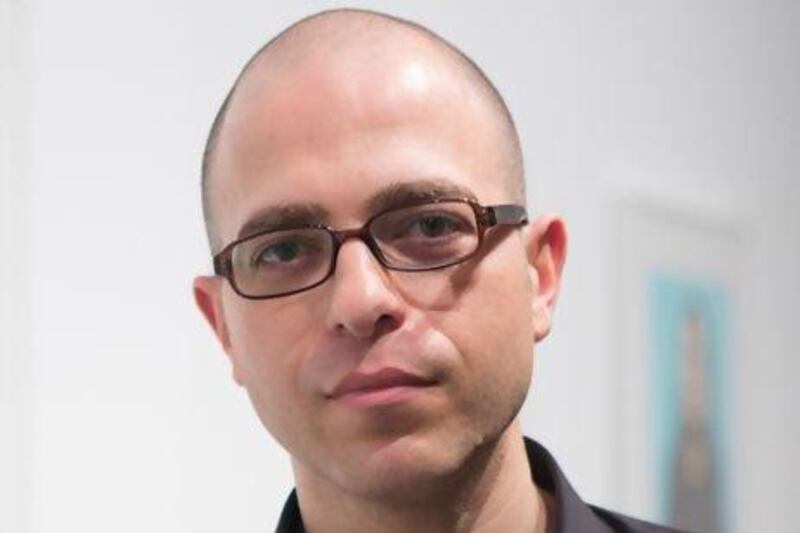It was a stroke of luck or, as he would put it, "an intervention of life" that catapulted the 19-year-old fledging photographer Youssef Nabil from a modest family home in Cairo into David LaChapelle's studio in New York. A few years later, in 1997, he was back on foreign soil working with Mario Testino in Paris. Thus began the tug-of-war between Nabil and his homeland, which is evident in all his art. Time of Transformation is his new show at The Third Line. It depicts painted photographs of famous women including Alicia Keys, Marina Abramovic, Catherine Deneuve and Isabella Rossellini, a movement series of a belly dancer dressed in gold and an eight-minute video lamenting the loss he felt when he left home.
You left Egypt permanently in 2003 but it still looms large in your consciousness. How have you been affected by the revolution and the events of the past two years?
It affected me much more than I thought it would. Leaving home for me was like dying and one of the things I discovered when I left is that the country left with me, I still carry the feelings of it within me. This show is called Time of Transformation and it is about what I felt happening within me after the past two years of revolution and changes in Egypt. I am trying to accept the fact that the country is changing and we, too, are also changing and it is very painful.
Why did you leave?
I am an artist and I deal with the body, and as time went on, society became more and more conservative so I felt I couldn’t really live in Egypt any more. I wanted to be based somewhere else where I felt I could be free as an artist. But I didn’t realise what the changes within me would be. I was in a new place, with new people and I felt I was starting my life again from zero.
The eight-minute film, You Never Left, is an exploration of these feelings; is that correct?
Yes. The film speaks about what I felt when I left Egypt and the relationship between leaving home when you have to and dying, being born again somewhere else. I wanted to use icons to tell the story, so I used the actors Tahar Rahim and Fanny Ardant and mixed religious imagery. Rahim represents myself and Ardant’s character is unclear – she might represent Egypt or his mother or his lover, but either way she never leaves him. The story is very personal.
Your style of hand-painted watercolour over black and white photographs is reminiscent of old Egyptian cinema, but it also raises issues of humanity and death. Can you please comment on that?
My work is about spirituality. It is about time, death and existence and about the relationship between people. In a way, all my photographs are self-portraits; they reflect my feelings as well as trying to penetrate my subject’s soul.
As for cinema, it was my introduction to death and my whole relationship with life because I discovered that everything is like a story, with a beginning and an end. I started wanting to photograph my friends in scenes that I write, using black and white film. Then I decided to paint the photograph using the same technique used in old Egyptian cinema. Now the process is very outdated. A lot of my work is about coming back to basics and escaping the craziness of this modern world of technology – the more we escape this, the more human we become.
The Last Dance is a new work depicting a belly dancer dressed in gold. Tell us about it.
One of the most beautiful things we have in Oriental culture is belly dancing, but now they are trying to ban it. This piece is about the Egypt I grew up in, where belly dancing was a pure art. I want to portray the woman in my photographs as a butterfly, she is trying to survive before she is transformed into something else. It is like the rest of the show, it is about adaptation and acceptance and loss.
Time Of Transformation is at The Third Line, Dubai, until June 12
Follow us
[ @LifeNationalUAE ]
And follow us on Facebook for discussions, entertainment, reviews, wellness and news.





